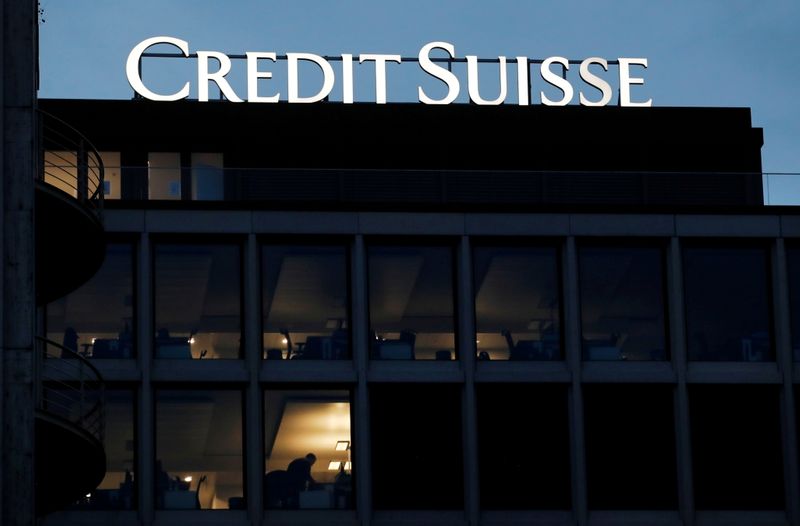By Tom Bergin and Silke Koltrowitz
ZURICH/LONDON (Reuters) - Supply chain finance firm Greensill Capital could file for insolvency within days, the Wall Street Journal reported on Monday, after Credit Suisse (SIX:CSGN) earlier said it had suspended $10 billion of funds that backed the London-based company's lending operations.
Greensill, backed by Japan's Softbank (OTC:SFTBY) Group, has appointed Grant Thornton for advice on a possible restructuring, the WSJ said, citing people familiar with the matter, and is in talks to sell its operating business to private equity giant Apollo.
Greensill and Grant Thornton declined to comment, while Apollo did not immediately respond to a request for comment.
Earlier on Monday the asset management arm of Credit Suisse said it was halting redemptions from its supply chain finance funds over concerns about being able to accurately value them.
Credit Suisse's funds invested in supply chain finance securities created by Greensill that were backed by short-term loans the UK firm had made to companies to help them spread out the time they have to pay bills.
In a note to investors, Credit Suisse Asset Management on Monday said that "a certain part of the subfunds' assets is currently subject to considerable uncertainties with respect to their accurate valuation".
Greensill spokesman James Doran said in response to the funds' closure that it was "in advanced talks with potential outside investors in our company and hope to be able to update further on that process imminently".
Greensill was founded by former Citigroup (NYSE:C) banker Lex Greensill in 2011. Its lending model is usually seen as a relatively low risk investment, but Greensill also provided finance to certain borrowers which did not have the usual type of supply chain arrangements used for this type of loan, publicly available accounts for borrowers show.
Nonetheless, Credit Suisse marketed the funds as 'low risk' investments partly on the basis, saying in January that almost all the money was insured. Credit Suisse on Monday declined to identify the insurers or confirm if the cover was still in place.
Any insurance that is in place does not cover all losses.
In accounts filed in January, Greensill said the insurance policies carried first loss clauses which meant it faced potential losses of up to $1.04 billion in the case of defaults.
Greensill told Reuters in January the probable loss was only $59 million.
GUPTA LINK
The WSJ on Monday reported that Credit Suisse was trying to reduce its exposure to Greensill Capital because of concerns over Greensill's exposure to metals tycoon Sanjeev Gupta.
Almost since its inception, Greensill has had a close association with Gupta's UK-based metals and energy group GFG Alliance, helping to raise billions to help fund Gupta’s acquisition of plants around the world.
However pressure has grown on Credit Suisse to cut the funds’ exposure to GFG-related credits since the near-collapse of fund manager GAM Holding AG in 2018, following a shuttering of funds related to the purchase of Gupta bonds structured by Greensill.
GFG declined to comment on Credit Suisse's statement or the WSJ report. Previously it said it had met all its obligations attached to its bond issues.

In 2020 Greensill sued Reuters for libel over a 2019 article in which Reuters said Greensill had issued a false statement in relation to a Gupta bond. Greensill withdrew the action after losing an early court ruling.